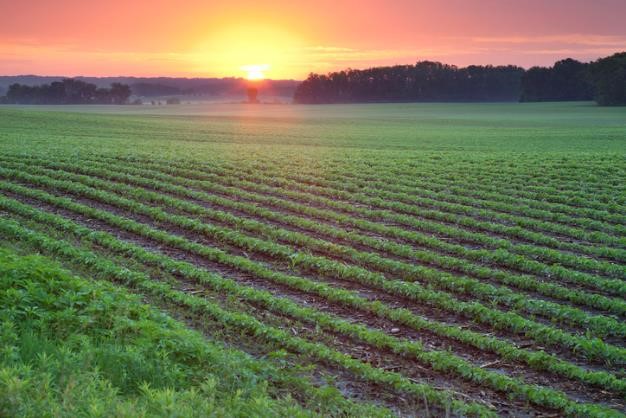Ontario Crop Report looks at effects of unusually dry summer
By Bill Brown
Farms.com Media
Despite some rainfall across many regions of the province Wednesday overnight, Ontario cash crops continue to suffer from an unusually dry summer.
Still, the Ontario Field Crop Report indicates it will be weather conditions over the next four to five weeks that are most crucial, and that will play a larger role than in final yield than the first half of the growing season.
Issued yesterday by the Ontario Ministry of Agriculture, Food and Rural Affairs, the report indicates that “most fields are now in the R2 (full flower) to R3 (beginning pod) growth stage.
“Vegetative growth has been highly dependent on the amount of rainfall in a given region. Moisture stress and leaf yellowing is evident in many fields.

“Soybeans flower over an extended period of time giving the crop the capacity to recover from early season moisture stress. Large yield losses do not generally occur unless moisture stress continues into the R4 (full pod) growth stage.”
Other points in the Crop Report:
- Dry conditions will amplify nutrient deficiency symptoms, insect feeding, and disease symptoms. When plants are already stressed it’s even more important to manage deficiencies wherever possible.
- Manganese (Mn) and Potash (K) deficiency are widespread this year. These two nutrient deficiencies have unique leaf symptoms. K deficient leaves turn yellow along the leaf margins, while Mn deficient leaves turn yellow across the whole leaf except for the veins which remain green.
- In dry years insects often proliferate quickly. To date spider mite damage has been limited, but field scouting will be important especially if conditions remain dry.
- Soybean aphids have only been reported in a few fields to date. Soybean aphid populations above threshold numbers (250 aphids per plant with increasing numbers) will cause yield losses until the R6 (full seed) growth stage. Soybean aphid management is essential in dry years since yield losses are highest when plants are already stressed.